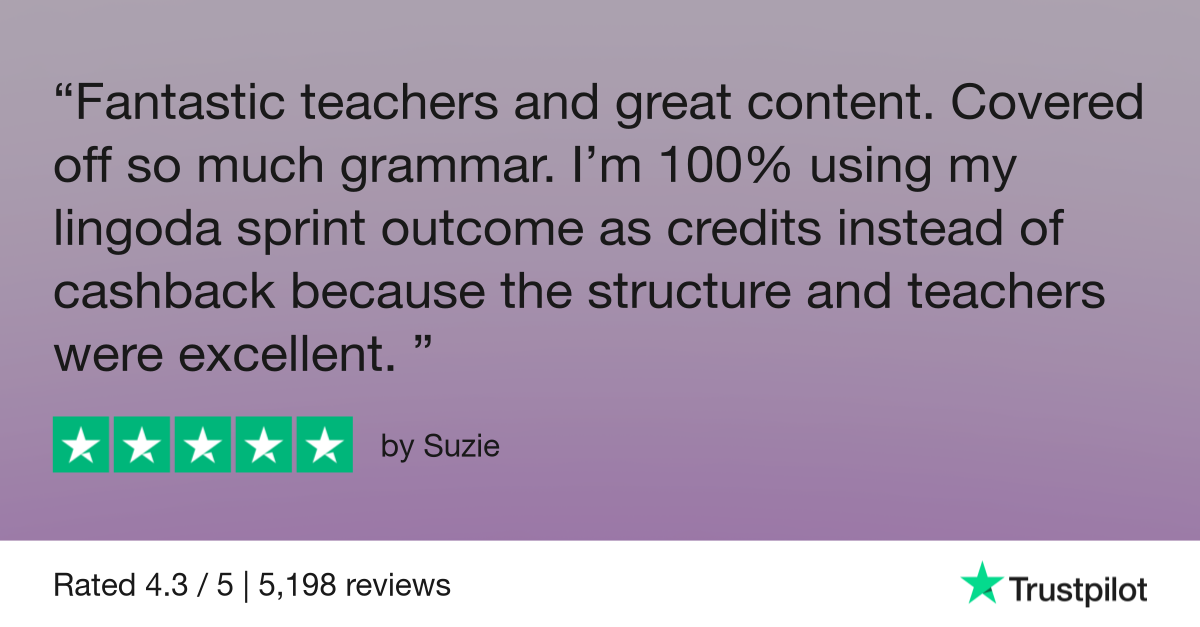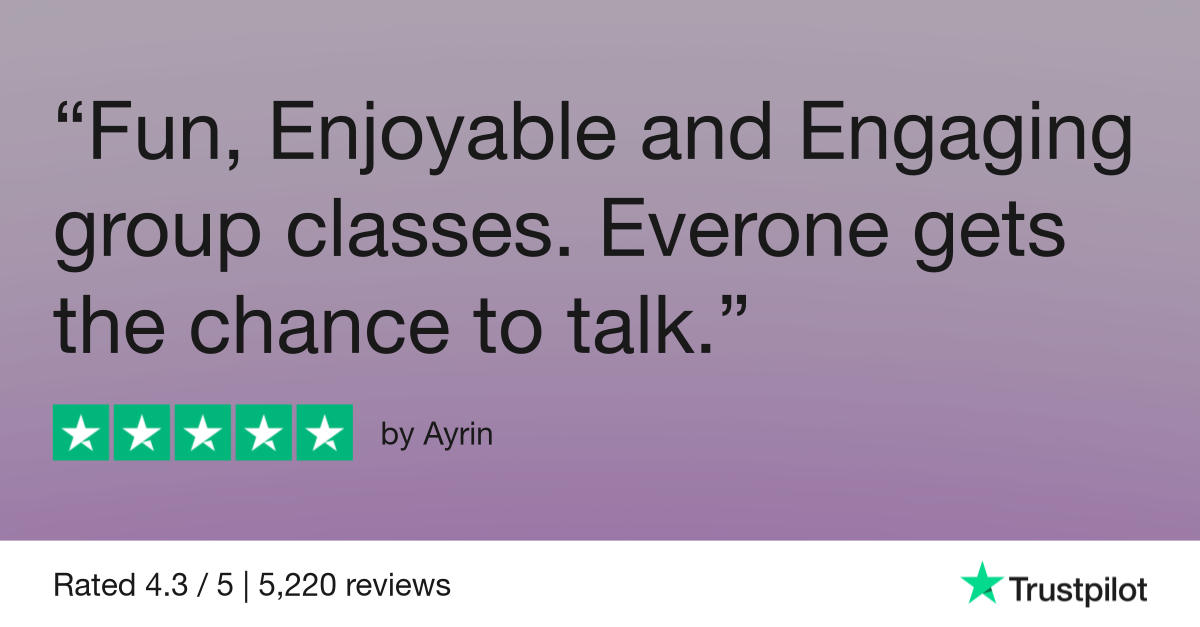How to master the German accent: A complete guide to sounding like a native

So, you want to master the German accent. Maybe you're learning the language for a new job, or maybe you’re just tired of sounding like every English speaker in East Berlin. Whatever your reason, nailing the German accent can make a big difference — not just in how you're understood, but in how you're perceived. It’s not about doing a convincing impression of a native speaker; it’s about connecting more naturally with the language and the people who speak it.
In this guide, we’ll discuss what defines the German accent, how it varies across regions, and what makes it sound, well, German. You’ll get practical tips, pronunciation tricks and answers to questions you didn’t even know you had.
- What is a German accent?
- Key features of authentic German pronunciation
- Why developing a German accent can help you
- How to practice and improve your German accent
- FAQs
What is a German accent?
An accent isn’t the same as a dialect.
If you speak German with a French accent, for example, you’re still speaking standard German, just with a French twist to the sounds. An accent is all about how you pronounce words: the rhythm, the intonation, the sounds.
A dialect, on the other hand, encompasses a greater range of linguistic particularities. It may be characterized by distinctive grammar, vocabulary and even sentence structure. Think of it as speaking a slightly different version of the language — not simply one with a twist, but one with its own unique ingredients.
‘Hochdeutsch’ (Standard High German)
Just like English sounds different in London, Liverpool and Edinburgh, German accents vary across the German-speaking world. Even though Hochdeutsch (Standard High German) is the version most learners study — especially in Lingoda courses — what you hear on the streets can be wildly different.
Hochdeutsch is the clean, neutral German you’ll find in textbooks, news broadcasts and language apps. As such, it serves as the baseline for most learners. Think of it as the “anchor” or reference point from which all the various German accents diverge.
Influence of Germanic sounds on pronunciation
The German accent has deep roots in Germanic linguistics, and you can hear it.
Consonants are sharper and more defined. Vowels are shorter. Compare the English “w” to the German w (which sounds like an English “v”); this isn’t just a subtle shift — it’s a fundamental difference in how the mouth forms sounds.
German doesn’t mumble. It means what it says — and it says it clearly.
The role of mouth and throat in German pronunciation
German is a full-body experience — for your mouth, your tongue and especially your throat. The infamous rolled or guttural r, for instance, is more than a sound — it’s a mini workout. Tongue placement shifts further back than in English. Sounds are more controlled and forceful.

Learn German with Lingoda
How it works

Key features of authentic German pronunciation
There’s more to sounding German than rolling your r’s. Authentic pronunciation lies in the details. Here are four features that shape the sound of spoken German and help separate learners from native speakers:
Short and long vowel rules in German
In German, vowel length isn’t a stylistic choice — it changes the meaning. Take bieten (to offer) and bitten (to ask): that tiny difference in vowel duration completely alters the word. Long vowels are held just a beat longer, and mastering this timing can instantly make you sound more fluent.
Umlaut sounds (Ä, Ö, Ü)
Umlauts may look intimidating, but they’re not just fancy accents — they’re entirely separate sounds. And these sounds can give different meanings to words. Schön (beautiful) isn’t the same as schon (already). To get these letters right, shift your mouth slightly forward and keep your lips rounded. If you can whistle or say “ew,” you can handle an umlaut.
The sharpness of consonants
German is all about crisp, precise consonants. Final t’s, k’s, and p’s pop more than in English. This clarity gives the language its signature precision. No dropped endings, no lazy blends.
Pitch and intonation differences
English tends to rise and fall in pitch, especially at the end of questions. German, on the other hand, keeps things steady. Questions rise only slightly, and statements often end firmly. This gives German a grounded, almost metronomic rhythm that can sound flat to English speakers — but it’s all part of its structure.
Why developing a German accent can help you
You don’t need a perfect accent to be understood, but sharpening your accent can take your German from functional to impressive. Here’s why it’s worth the effort:
Cultural fluency and connection
A good accent signals respect. Native speakers often open up more when they hear someone trying to speak like them, not just to them. It can bridge gaps, spark conversations and show that you’re actively engaging with the culture rather than just passing through.
Improved listening and speaking skills
Once you train your ear to pick up on German sounds, especially subtle ones, your listening skills will level up fast. You’ll start to recognize word boundaries, vowel changes and speech patterns that once flew past you. Speaking becomes smoother, and understanding native-speed German won’t feel like chasing a train.
Better pronunciation = better confidence
Self-consciousness is difficult to get over, but it can really hold you back. Just remember that everybody sounds awkward at first, and it takes exposure to develop the kind of clear, confident pronunciation that changes how people hear you (and how you hear yourself). Whether you're in a job interview, giving directions or ordering Kaffee und Kuchen, sounding natural boosts credibility and comfort.
How to practice and improve your German accent
Getting the German accent right is more about training than it is about raw talent. And the good news? You can train anywhere, and whenever you’d like. Here are our top tips to develop a better German accent.
Repeat after native speakers
Mimicry works. Watch German videos, listen to podcasts or tune into the news — then hit pause and repeat. Focus on the intonation, not just the words. Try to copy the rhythm, pitch and pauses like you're impersonating rather than merely translating. Your ear will sharpen, and your mouth will follow.
Record yourself and compare
This feels awkward at first, but it’s gold. Record yourself saying the same phrase as a native speaker, then play both versions back-to-back. It’s like holding up a mirror to your accent. You’ll spot what sounds off and what’s already improving. Small tweaks add up fast.
Learn with native-level speakers on Lingoda
Of course, there’s no substitute for real-time feedback. Lingoda’s small-group classes are taught by native-level teachers who don’t just correct mistakes but help you sound the part. You’ll get instant pointers on pronunciation tips, plus the chance to practice with others who are just as motivated to get it right.
What’s the most common German accent?
Hochdeutsch (Standard High German) is the most widely spoken and understood variation of German, especially in education and media.
Why do Germans pronounce English words differently?
German doesn’t have sounds like the English “th” or the soft “w,” so speakers often substitute with the closest German equivalents — like “s” or “z” for “th,” and “v” for “w.” It’s not a mistake; it’s muscle memory.
Don’t just learn German — sound German
Mastering a German accent is all about clarity, confidence and connection above perfection. Whether you're shaping sharp consonants, tackling tricky umlauts or just trying not to sound like a tourist ordering Wiener schnitzel, every small improvement brings you closer to sounding (and feeling) more at home in the language.
If you’re ready to take your accent to the next level, learning German with real humans helps. Lingoda’s small-group classes and flexible scheduling make it easy to fit in regular practice with native-level teachers.
Now it’s time to tune your ear, train your tongue and start sounding like the German speaker you’re already becoming!

Learn German with Lingoda
How it works

















